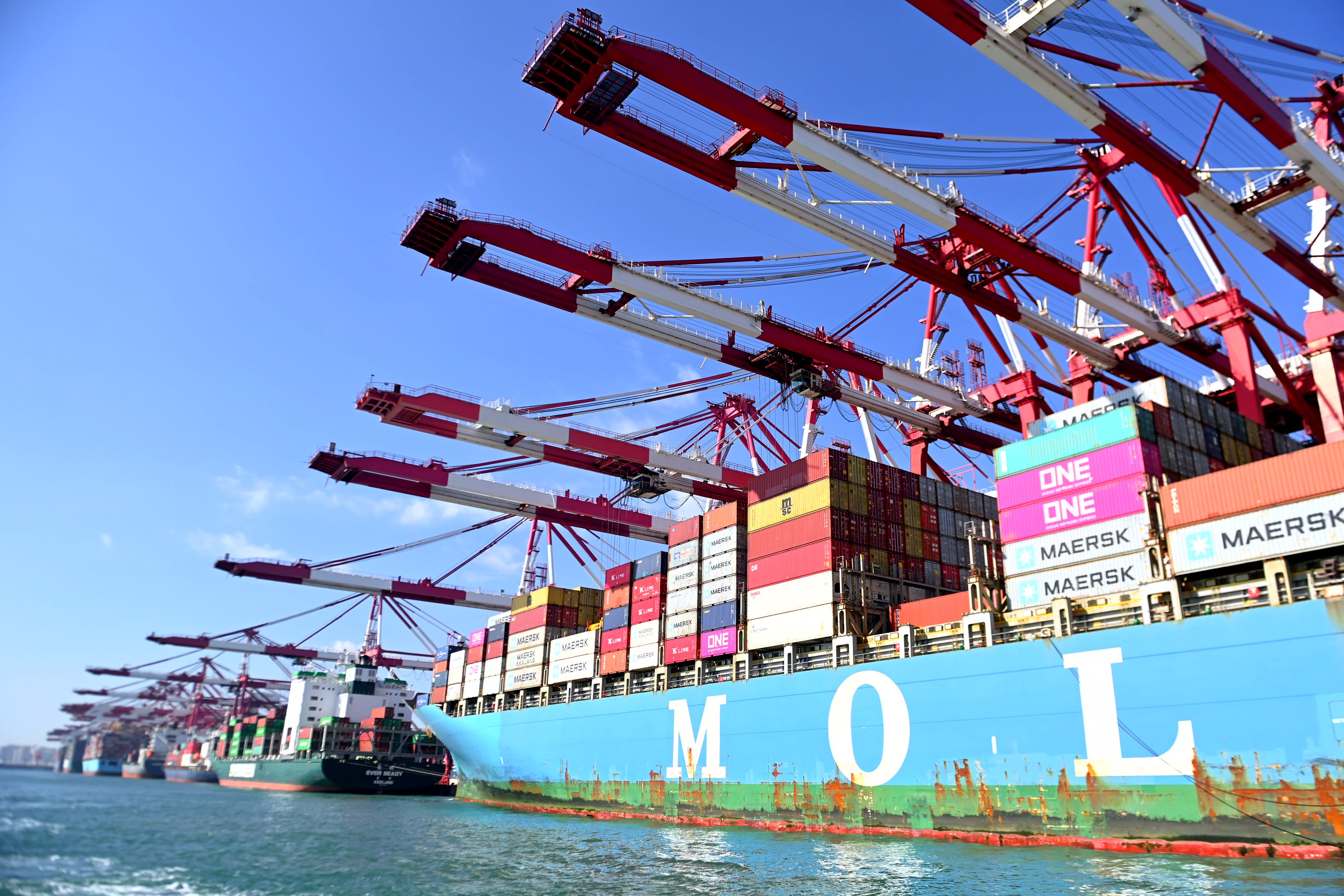‘The crisis is not yet over’: Omicron variant could deal another blow to supply chains
Cargo ships load and unload containers at Qingdao Port’s foreign trade container terminal in Qingdao, East China’s Shandong Province, Nov 11, 2021.
Yu Fangping | Costfoto | Barcroft Media | Getty Images
Ports and companies have been battling the global supply chain crisis since the start of the year. Just as it appeared like the crisis was beginning to stabilize, the industry may now face yet another blow: the new omicron Covid variant.
Omicron is “another test of resilience” for already-stressed supply chains, said Per Hong, senior partner at consulting firm Kearney.
“Supply chains remain vulnerable to pandemic-related disruptions, with the Omicron variant highlighting that the crisis is not yet over,” said Sian Fenner, lead Asia economist at Oxford Economics, in a note on Wednesday.
A lot of unknowns, but Omicron (is) certainly setting up to be yet another test of resilience for global supply chains that were already under stress and in the midst of a lengthy healing process.
Per Hong
senior partner, Kearney
The world first became aware of the new omicron variant late last week, after a South African scientist flagged the emergence of the strain. The World Health Organization swiftly labeled it a “variant of concern,” adding that it’s likely to spread further and could potentially become a “very high” global risk.
Since then, the strain has been found among cases in the U.K., France, Israel, Belgium, the Netherlands, Germany, Italy, Australia, Canada and Hong Kong.
‘Knock-on effects’ of lockdowns
While there have been no reported cases of omicron in mainland China, Hong said he’s closely watching the Chinese government’s response due to cases surfacing in Hong Kong.
“China is expected to double down on its ‘zero-COVID’ policy that in the past has included mass lockdowns of entire cities, enforced quarantines, as well strict checks at ports, including monitoring ships and cargo, to prevent cases from coming in,” he wrote.
Other analysts have also warned that China could intensify its zero-Covid measures with the emergence of omicron.
As disruptions caused by the Covid pandemic early on have shown, lockdown measures in one country have “significant knock-on effects both up and downstream into other areas,” Hong pointed out.
“If this does happen, not only will shipping be constrained, but we are certain to see yet more shortages of key manufacturing components and extended order backlogs for core electronic, automotive and consumer products depending on regions impacted,” he said.
Some of the world’s busiest ports are in China. Of the top 10 busiest ports, seven are in China, according to data from the World Shipping Council. Shanghai ranks first, Ningbo-Zhoushan ranks third, and Shenzhen in fourth place, while Hong Kong is the eighth most busy port last year.
To be sure, the WHO has said it remains unclear whether the omicron variant causes more severe disease than other strains, such as delta.
“A lot of unknowns, but Omicron [is] certainly setting up to be yet another test of resilience for global supply chains that were already under stress and in the midst of a lengthy healing process,” said Hong.
Omicron could set back regional exports recovery
Most governments in the region are likely to resist re-imposing severe restrictions, but the bottom line is that supply chains will remain under pressure while the Covid threat persists.
As restrictions eased in Asia, workers were able to return and factories came online again in September – although there were still some bumps along the way like reinstating of some restrictions to stabilize recent Covid waves, according to Fenner of Oxford Economics.
“Even as more production comes online, there remain logistical challenges, particularly across shipping but also in air freight,” she said. That includes constraints on shipping supply in the short run, due to the “multi-year lag” between new orders for ships and deliveries.
Globally, less than half the ships arrived on time during 2021, and delays for late ships consistently add more than a week to delivery times — compared to about four days in 2018 and 2019, according to Oxford Economics.
Vietnam, a key exporter in Asia, is set to regain exports share after an “especially severe” third Covid wave, said research firm TS Lombard. The pandemic had caused the Southeast Asian country to shut down its factories, causing problems for many American firms with manufacturing facilities there, in particular.
But, if omicron throws a wrench in the works on supply chain recovery, it could pose a threat to regional exports recovery, said analysts from TS Lombard in a note on Monday.
“Most governments in the region are likely to resist re-imposing severe restrictions, but the bottom line is that supply chains will remain under pressure while the Covid threat persists,” they said.
If omicron hits supply chains, the impact on Asia’s gross domestic product is likely to be a fall of 1.6 percentage points for next year, said Oxford Economics.
For all the latest Technology News Click Here

